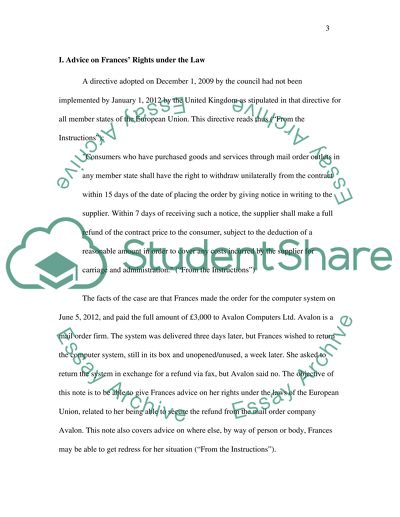Cite this document
(“Advice on Frances Rights under the Law Essay Example | Topics and Well Written Essays - 2500 words”, n.d.)
Retrieved from https://studentshare.org/law/1466536-1an-imaginary-directive-which-was-adopted-by-the-council-on-1st-december
Retrieved from https://studentshare.org/law/1466536-1an-imaginary-directive-which-was-adopted-by-the-council-on-1st-december
(Advice on Frances Rights under the Law Essay Example | Topics and Well Written Essays - 2500 Words)
https://studentshare.org/law/1466536-1an-imaginary-directive-which-was-adopted-by-the-council-on-1st-december.
https://studentshare.org/law/1466536-1an-imaginary-directive-which-was-adopted-by-the-council-on-1st-december.
“Advice on Frances Rights under the Law Essay Example | Topics and Well Written Essays - 2500 Words”, n.d. https://studentshare.org/law/1466536-1an-imaginary-directive-which-was-adopted-by-the-council-on-1st-december.


